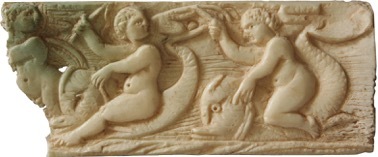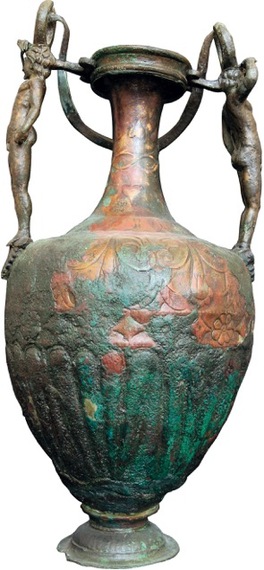Everywhere memory is in danger--in our heads, in our disappearing bookstores, in the Twittering reduction of communication to chatter, and as the black market in physical markers of memory scales unparalleled heights enriching the world's richest collectors to the benefit of revolutionary terror. Not merely the ongoing destruction of Palmira by ISIS, its ancient marbles drilled and hacked into pieces by concrete cutters but thousands of heads, busts, arches and columns throughout Irak and Syria disappeared into the salons and vaults of the world's wealthiest families. And now at greater risk than ever before are the most prized residues of classical Rome scattered across the sands of Libya.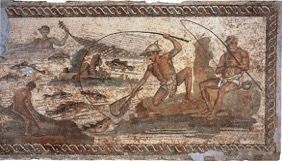
Libya is but the latest country to be placed on the International Council of Museum's (ICOM) Red List of endangered cultural objects. Marbles, sandstone pieces, bronzes, ceramics: most of them were never at risk when Libya was under the grip of the bloody dictator Muammar Gaddafi, who like Egypt's Mubaraks saw them as important pieces of family treasure. Just as did Saddam Hussein in Irak.
Aside from their all too obvious value on the black market, the great puzzlement to many of us in the West, is why these treasures possess seemingly no meaning to the multiple jihadist radicals blooming up across Africa and the Middle East. How could it be that these crusaders for the memory of the Prophet have no appreciation for the wonders of the world from which the Prophet sprang?
The quick answer from armchair pundits is that today's jihadists are loser nihilists swallowed up in a whirlpool of fundamentalist dementia, men--mostly men--who have no idea what their bombs and kalishnikovs are destroying. More careful thinkers propose a more complex explanation.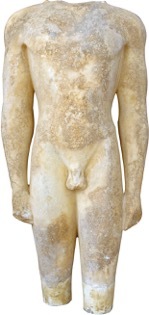
One of the most interesting is Scott Atran, an American anthropologist who has spent his life examining religious movements. In a recent article, "ISIS is a revolution," in the online magazine Aeon, Atran argued at length that the West fundamentally misunderstands the mission of the radicals allied with the Islamic State. "Despite our relentless propaganda campaign against the Islamic State as vicious, predatory and cruel - most of which might be right - there is little recognition of its genuine appeal, and even less of the joy it engenders. The mainly young people who volunteer to fight for it unto death feel a joy that comes from joining with comrades in a glorious cause, as well as a joy that comes from satiation of anger and the gratification of revenge (whose sweetness, says science, can be experienced by brain and body much like other forms of happiness).
Take away the Islamic State's outward targets and concentrate instead on the nature of their internal fervor. Their profile is not so far many other revolutionary zealots--including the dedicated militants of the underground Weatherman movement of 1970s America, founded by star scholars Bill Ayers and Bernadine Dohrn, symbolized perhaps most grostesquely by their infamous celebration of the murder of pregnant actress Sharon Tate when Charles Manson stabbed her with a fork in her abdomen: "Offing those rich pigs with their own forks and knives, and then eating a meal in the same room, far out! The Weathermen dig Charles Manson," followed by fists held high with fingers extended and the cry, "Eat Fork." More deeply in American history, look closely at the British accounts of the insatiable American revolutionaries in 1775 or the wanton terror that followed the beheadings and disembowelments of the French aristocracy in 1789. Or as Mao Tse Tung reportedly remarked, "A Revolution is not a picnic."
Of course, most of America, including most of the 1970s American left, curdled at the thought of comparing the American or French Revolutions with the bombings and rhetoric of Dohrn, Ayers and the Weather Underground. To see the Weather activists, some of whom I later knew and lived with, as leading a genuine national uprising appears to us today as ludicrous, even embarrassing. But most of those who were in it and have long since blushed with deep embarrassment at their youthful engagements, still speak of the unparalleled joy of engaging in a messianic transformation--a transformation that aimed essentially at unraveling the criminal Vietnam War and the persistent racism that was a betrayal of America's highest ideals.
Which returns us to ISIS and its proliferating campaign of destruction. "[T]here is also a subliminal joy felt across the region for those who reject the Islamic State's murderous violence yet yearn for the revival of a Muslim Caliphate and the end to a nation-state order that the Great Powers invented and imposed," Scott Atran writes. "It is an order that has failed, and that the US, Russia and their respective allies are trying willy-nilly to resurrect, and it is an order that many in the region believe to be the root of their misery. What the ISIS revolution is not, is a simple desire to return to the ancient past. The idea that ISIS seeks a return to medieval times makes no more sense than the idea that the US Tea Party wants to return to 1776. 'We are not sending people back to the time of the carrier pigeon,' Abu Mousa, ISIS's press officer in Raqqa, has said. 'On the contrary, we will benefit from development. But in a way that doesn't contradict the religion.'"
Still, why the wanton destruction of the region's magnificent architecture and artifacts?
For some, the answer is religion. Just as the "Christian" Old Testament warns "thow shalt have no other gods before thee" so Islamic monotheism also rejects any recognition of earlier or other gods or their temples. For those relatively few religious fundamentalists monuments of faiths and civilizations gone by are symbols of apostasy. But for the genuine architects of the would-be new Caliphate--many of whose leaders come from Saddam Hussein's secular Baathist movement--the bowls, the arches, the statuary are plain symbols of Occidental occupation, which in venerating the Romans, the Phoenicians and the Greeks all but erases a thousand years of Arab accomplishments in science, poetry and architecture. To blast those monuments of Western Civilization into piles dust, or to disappear them into the halls of greedy western plutocrats, is a direct and simple assault on the dominance of western memory.
To that end, as more and more ancient treasures are placed on ICON's Red Lists of endangered artifacts--a Red List that is itself largely financed by the U.S. Government--they in fact become even more important targets of the far-flung and highly disparate jihadist revolution.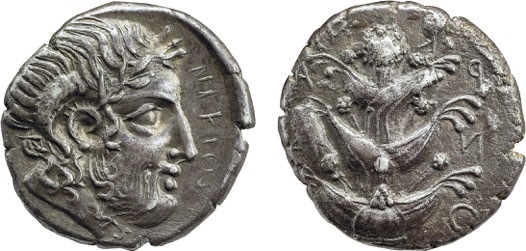
But in destroying these ancient markers of the past what then, westerners ask, does the would-be Caliphate positively seek? Here again, Scott Atran explains, their objective--not so different from Turkish president Ercep Erdogan's dream--is to remount the lost Ottoman Empire in modern terms and forever erase the artificial boundaries drawn by the victors of World War I.
"All of the European political imports and even nationalism itself (except maybe for Turkey, Egypt and Iran, which are still more built around ethnicity and faith than national identity per se) have failed in the Middle East, and miserably so. People are longing for something in their history, in their traditions, with their heroes and their morals; and the Islamic State, however brutal and repugnant to us and even to most in the Arab-Muslim world, is speaking directly to that.
"What inspires the most lethal assailants today is not so much the Quran but a thrilling cause and a call to action that promises glory and esteem in the eyes of friends. Yet the U.S. and Western powers don't seem to recognize that revival. The hackneyed solutions amount to a tired call to shore up the broken nation-state system imposed in the aftermath of the First World War by the European victors, Great Britain and France, and a reaffirmation of 'moderate Islam', which appeals to young people's longings for adventure, glory, ideals and significance even less than does the eternal promise of shopping malls."
Or the artifacts of Greece and Rome that the West hallows that western democracies revere as the hearthstone of their civilizations.
The hypocrisy of Western peacefulness, cherished in our museums ignores the triumphantly cut-throat campaigns that have marked our civilizations from the wars of religion through the unprecedented blood letting of the 20th Century. Scott Atran, himself an American working with a pedigree at the University of Michigan whose research on jihadist extremism bridges three continents, warns us simply: Red Lists will accomplish nothing so long as Arabs and Africans continue to grovel under the boot of Euro-American powers and their chosen local oligarchs. Even possibly sadder these noble treasure lists may even come to epitomize the dark past imposed on their ancestors.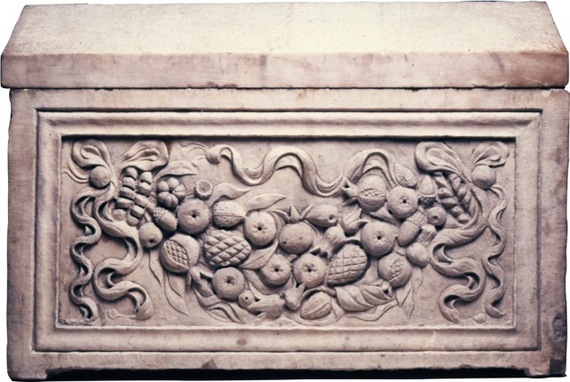
-- Photos by Fabian Baroni, Courtesy of ICOM Red List --

